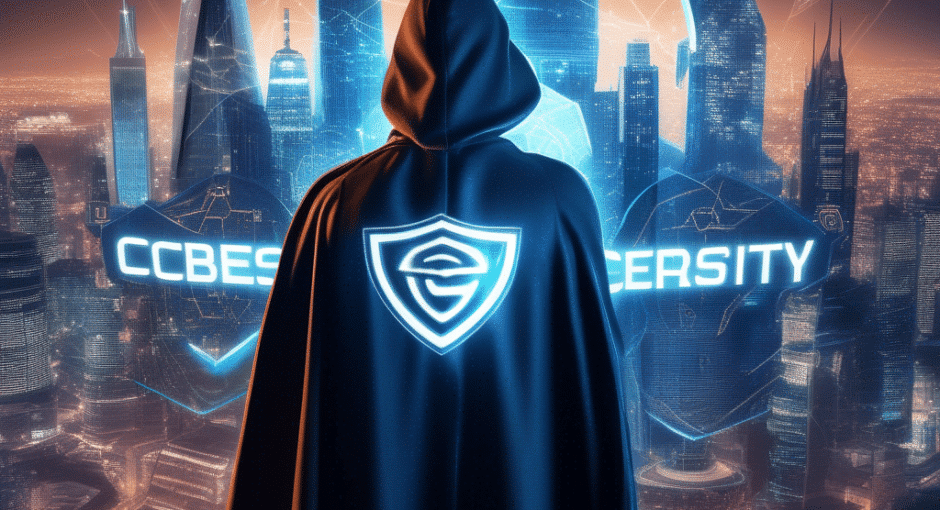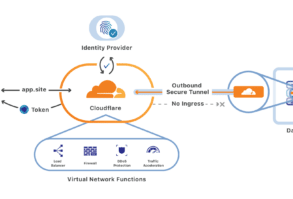In today’s digital age, cybersecurity has become more important than ever. With cyber threats constantly evolving and becoming increasingly sophisticated, it is crucial for individuals to stay vigilant and take proactive steps to protect themselves and their sensitive information. Whether you are a college student, a working professional, or simply someone who uses technology on a daily basis, understanding the basics of cybersecurity and implementing essential daily tips can greatly enhance your online safety. In this article, we will explore the fundamentals of cybersecurity and provide you with valuable insights and strategies to protect yourself from cyber threats. From empowering users through cybersecurity education to expert strategies for daily defense, this comprehensive guide will equip you with the knowledge and tools to safeguard your digital presence. So, let’s dive in and discover how you can stay one step ahead in the cyber realm.
- 1. "Cybersecurity 101: Essential Daily Tips for End User Security"
- 2. "Empowering Users: How Cybersecurity Education Can Enhance Daily Protection"
- 3. "Stay One Step Ahead: Expert Strategies for Daily Cybersecurity Defense"
1. "Cybersecurity 101: Essential Daily Tips for End User Security"
In today’s digital age, cybersecurity has become more important than ever. With the increasing number of cyber threats and attacks, it is crucial for individuals to prioritize their online security. Whether you are a college student, a working professional, or simply someone who uses the internet on a daily basis, following essential cybersecurity tips can help protect your personal information and prevent unauthorized access to your devices.
1. Keep your software up to date: One of the easiest ways for hackers to exploit vulnerabilities in your system is through outdated software. Regularly update your operating system, web browsers, and other applications to ensure that you have the latest security patches installed. Enable automatic updates whenever possible to stay protected against emerging threats.
2. Use strong and unique passwords: Weak passwords are a hacker’s best friend. Create strong passwords that include a combination of uppercase and lowercase letters, numbers, and special characters. Avoid using common passwords or personal information that can be easily guessed. Furthermore, it is important to use different passwords for each online account to minimize the impact of a potential data breach.
3. Be cautious of phishing attempts: Phishing is a common method used by cybercriminals to trick individuals into revealing sensitive information such as passwords or financial details. Be wary of suspicious emails, messages, or phone calls that ask for personal information or urge you to click on unknown links. Verify the legitimacy of the sender or the source before sharing any sensitive data.
4. Enable two-factor authentication (2FA): Two-factor authentication adds an extra layer of security to your online accounts. By requiring a second form of verification, such as a code sent to your mobile device, even if your password is compromised, hackers will still need access to your physical device to gain entry. Enable 2FA whenever it is available to enhance your account security.
5. Secure your Wi-Fi network: Your home Wi-Fi network can be a gateway for hackers to gain access to your devices. Change the default administrator password for your router and use a strong, unique password. Additionally, enable encryption (WPA2 or higher) to prevent unauthorized users from connecting to your network. Regularly check for firmware updates for your router to ensure any security vulnerabilities are patched.
6. Be cautious when downloading or clicking on links: Malicious software can easily be disguised as legitimate files or links. Only download files or click on links from trusted sources. Be cautious of pop-up ads or suspicious websites that may contain malware. Always verify the authenticity of the source before downloading or clicking on anything.
7. Backup your data regularly: Data loss can occur due to various reasons, including cyberattacks. Regularly backup your important files and documents to an external hard drive or cloud storage. In case of a ransomware attack or system failure, having backups ensures that you can recover your data without paying a ransom or losing it permanently.
Cybersecurity is an ongoing process that requires continuous education and awareness. Stay updated with the latest cybersecurity news and trends, and invest in cybersecurity training to enhance your knowledge and skills. By implementing these essential daily tips for end user security, you can significantly reduce the risk of falling victim to cyber threats and safeguard your digital presence.
2. "Empowering Users: How Cybersecurity Education Can Enhance Daily Protection"
Empowering Users: How Cybersecurity Education Can Enhance Daily Protection
In today’s digitally-driven world, cybersecurity has become an essential aspect of our daily lives. With the increasing number of cyber threats and attacks, it is crucial for individuals to take proactive measures to protect their personal information and digital assets. While organizations play a vital role in implementing robust cybersecurity measures, empowering users through cybersecurity education is equally important for enhancing daily protection.
Cybersecurity education aims to equip individuals with the knowledge and skills necessary to identify and respond to potential threats. By raising awareness about the various cyber risks and best practices for online safety, users can become proactive defenders of their own digital security. Here are some ways in which cybersecurity education can empower users:
1. Recognizing Phishing Attempts: Phishing is one of the most common methods used by cybercriminals to deceive users and gain unauthorized access to sensitive information. Cybersecurity education teaches users how to identify phishing emails, suspicious links, and fraudulent websites. By understanding the telltale signs of a phishing attempt, users can avoid falling victim to such scams and protect their personal data.
2. Creating Strong Passwords: Weak passwords are a major vulnerability that can be exploited by hackers. Cybersecurity education emphasizes the importance of creating strong and unique passwords for each online account. Users learn the significance of using a combination of uppercase and lowercase letters, numbers, and special characters to enhance the complexity of their passwords. Additionally, they are encouraged to use password managers to securely store their login credentials.
3. Updating Software and Applications: Regularly updating software and applications is crucial for maintaining a secure digital environment. Cybersecurity education educates users about the importance of installing updates as they often contain security patches that address vulnerabilities. By staying up to date with the latest software versions, users can minimize the risk of exploitation by cybercriminals.
4. Practicing Safe Browsing Habits: The internet is filled with potential threats, and users need to adopt safe browsing habits to mitigate these risks. Cybersecurity education teaches users to be cautious while clicking on unknown links, downloading files from untrusted sources, and sharing personal information online. By adopting safe browsing practices, users can reduce the chances of falling prey to malware, ransomware, or other malicious activities.
5. Implementing Two-Factor Authentication (2FA): Two-factor authentication adds an extra layer of security to user accounts by requiring additional verification beyond just a password. Cybersecurity education encourages users to enable 2FA whenever available, as it makes it significantly harder for attackers to gain unauthorized access to accounts. By implementing this additional security measure, users can significantly enhance their daily protection.
In conclusion, cybersecurity education plays a crucial role in empowering users and enhancing their daily protection against cyber threats. By educating individuals about the various risks and best practices, users become proactive participants in safeguarding their personal information and digital assets. As technology continues to evolve, ongoing cybersecurity education is essential to adapt to new threats and ensure a secure digital environment for all.
3. "Stay One Step Ahead: Expert Strategies for Daily Cybersecurity Defense"
In today’s digital age, cybersecurity has become more important than ever. With cyber threats evolving constantly, it is crucial for individuals to stay one step ahead in their daily cybersecurity defense. By implementing expert strategies and staying informed about the latest trends in cybersecurity, you can significantly reduce the risk of falling victim to cyber attacks. Here are three expert tips to help you enhance your daily cybersecurity defense:
1. Keep Your Software Updated: One of the easiest ways for cybercriminals to gain access to your personal information is through outdated software. Regularly updating your operating system, web browsers, and applications is essential as these updates often include security patches that address vulnerabilities. Enable automatic updates where possible, or make it a habit to check for updates regularly. By doing so, you ensure that you are protected against the latest threats.
2. Be Wary of Phishing Attacks: Phishing attacks remain one of the most common and effective methods used by cybercriminals to steal sensitive information. Phishing emails and messages are designed to trick you into revealing personal data or clicking on malicious links. To protect yourself, always double-check the sender’s email address, look for spelling and grammar errors, and be cautious of urgent or suspicious requests for personal information. When in doubt, contact the organization directly through verified channels to confirm the legitimacy of the communication.
3. Use Strong, Unique Passwords: Passwords are the frontline defense for your online accounts, yet many people still use weak or easily guessable passwords. To strengthen your defense, create strong and unique passwords for each of your accounts. A strong password should be at least 12 characters long and include a combination of letters, numbers, and special characters. Avoid using common words or personal information that can be easily guessed. Consider using a password manager to securely store and generate complex passwords for you.
In addition to these expert strategies, ongoing cybersecurity education plays a crucial role in staying one step ahead of cyber threats. Stay informed about the latest trends in cybersecurity through reputable sources, such as cybersecurity blogs, news websites, or professional organizations. By staying proactive and continuously educating yourself about new threats and best practices, you empower yourself to make informed decisions when it comes to your online security.
Remember, cybersecurity is a collective responsibility. By implementing these expert strategies and educating yourself about end user security, you can contribute to a safer online environment for everyone. Stay vigilant, stay informed, and stay one step ahead in your daily cybersecurity defense.
In conclusion, cybersecurity is not just a concern for IT professionals or government agencies. It is something that each and every one of us needs to take seriously in our daily lives. The tips and strategies discussed in this article are designed to empower end users and enhance their daily protection against cyber threats.
By following the essential daily tips outlined in "Cybersecurity 101," individuals can significantly reduce their vulnerability to attacks. Simple actions such as using strong and unique passwords, regularly updating software, and being cautious of suspicious emails can go a long way in safeguarding personal and sensitive information.
Furthermore, the importance of cybersecurity education cannot be overstated. As highlighted in "Empowering Users," educating oneself about the latest threats, best practices, and emerging technologies is crucial in staying ahead of cybercriminals. By investing time and effort in learning about cybersecurity, individuals can better protect themselves and their digital assets.
Lastly, "Stay One Step Ahead" emphasizes the need to adopt expert strategies for daily cybersecurity defense. This includes using multi-factor authentication, regularly backing up data, and employing strong encryption methods. By staying proactive and keeping up with the evolving threat landscape, individuals can minimize the risks associated with cyber attacks.
In a world where technology permeates every aspect of our lives, cybersecurity should be a top priority. Whether you are a college student, a working professional, or a retiree, taking the necessary steps to protect your digital footprint is essential. By implementing the daily tips, empowering yourself through education, and staying one step ahead with expert strategies, you can confidently navigate the digital landscape and safeguard your online presence. Remember, cybersecurity is a collective responsibility, and every individual plays a crucial role in ensuring a safer online environment.






